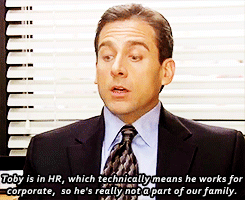Discourse Communities and The Matrix
The topic of discourse communities brings students to the Writing Center every semester. Many have trouble identifying them. And if they can identify them, they have trouble writing about them. The reason, I believe, is not that discourse communities are discrete or hard to find: it’s because they’re ubiquitous.
Have you seen The Matrix? In it, protagonist Neo is told that he is actually experiencing a false reality programmed by a powerful AI. Everyone in the Matrix thinks they’re just living life. It’s not until Morpheus finds Neo and shows him what the Matrix is, what it looks like, and what it does that Neo can recognize and even manipulate it.
Discourse communities are definitely not as malicious as the Matrix, but I draw this analogy because everyone is a member of a discourse community, whether they know it or not. Every day, we habitually engage our discourse communities at work, at school, in our various hobbies, and in conversations with our friends and family, not unlike how humans in The Matrix unwittingly power their AI overlord by acting as human batteries. But once you’re aware that you are a part of a discourse community, you also become aware of its barriers, the way you communicate with one community versus another, what the discourse aims to achieve, and even how you dress and act while inside. It’s a lot to take in, and it’s hard to find the words for something so familiar to you. It’s like trying to instruct someone on how to turn oxygen into carbon dioxide. So let’s define what a discourse community as a way of unlocking it.

John Swales, a scholar in the discourse of writing composition, says that every discourse community has these six features:
- A set of common public goals
- Common ways in which members communicate
- Means by which members participate in discourse and provide feedback
- One or more genres in which communication takes place
- An acquired lexis that is inscrutable to non-members
- A threshold of requirements for membership
If you want to figure out if something qualifies as a discourse community, try comparing it against these features. There are a couple places you can start looking for discourse communities.
Try your academic major. Historians, for instance, 1) aim to discover historical evidence and analyze it to better understand the present; 2) communicate via books, scholarly journals, and lectures, among others; 3) use many of those same avenues to respond and criticize each other; 4) utilize the genres of research papers, non-fiction prose, bibliographies, and documentaries, just to name a few; 5) use terms like “circa,” “artifacts,” “carbon-dating,” “primary source,” and other terms that are specific to their goals and ways of communicating; and 6) must at the very least have an interest in history and access to historical research to be considered a historian, although it’s also common to pursue degrees in the subject as part of their training.
You could also consider your profession a discourse community, but it’s important to keep the six characteristics in mind. For instance, if you’re a server or a chef at a restaurant, you might identify food service as an discourse community. And why not? Food service aims to 1) sell food to paying customers, innovate food preparation, and employ hardworking individuals; 2) communicate via recipes, seating charts, and menus; 3) receive feedback through reviews in print or online; 4) utilize the genres of cookbooks, recipes, blog posts, and training; 5) use terms like “ServSafe,” “sous chef,” “4-top,” and other terms that may not be understood by patrons; and 6) must have knowledge of food preparation and/or food safety, and the ability to cope with stress. You could even narrow this to a community of just servers, whose public goals may include ensuring fair treatment and pay in a job where one makes tips, and members must pass a threshold of being able to balance plates, remember specials and ingredients, consider customers’ allergies and intolerances, and deal with absolute jerks.

However, I advise against taking your literal workplace and calling it a discourse community, because while a chef and a server both work in the same restaurant, they both perform very different tasks with very different sets of skills. For another example, a single IT company may fit these six characteristics, but is probably not distinct enough from any other IT company that it qualifies as its own discourse community. Plus, there are a lot of people working at any company — human resources professionals, customer service reps, managers, sales people — and these groups don’t share the same genres, lexicon, or threshold for membership. The computer engineers likely speak and write using a lexicon unfamiliar to the HR department, whose public goal of ensuring a safe and thriving workplace is different than the accountants’, who are using the spreadsheet genre to ensure that the company will not go bankrupt. So discovering a discourse community can be a tricky balancing act between specificity and broadness.

We’ve covered academia and careers as potential discourse communities, but have you considered your hobbies? More likely than not, what you do in your free time may also be a discourse community, and your hobby is definitely important enough to write about. So as an exercise, take your hobby and justify it as a discourse community using Swales’s list. For example, I’m an avid knitter, and I can tell you that the yarncraft discourse is extremely lively — we engage each other on a dedicated website as well as social media, meet in local yarn stores, and write articles to discuss everything from knitwear fashion trends to the importance of making the crafting community more racially diverse and inclusive.
By the end of The Matrix, Neo is able to do some powerful things like stop bullets and fly; because he knows what the Matrix is, he can engage it to his advantage. Similarly, being able to identify and define discourse communities will help you navigate them more easily because you now have the metacognition to operate within them. You’ll have a better idea of how to converse with other members of the community, how to spot your people, and even how to introduce new members, like Morpheus does with Neo. It will make you a louder and prouder voice in your community, no matter what that community is.

Leave a Reply